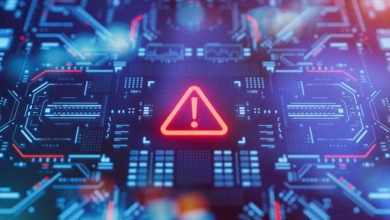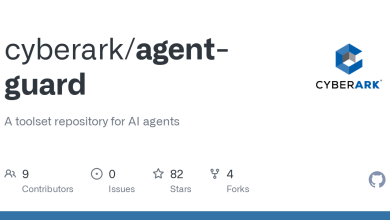Singapore IT Leaders Eager for Innovation, But Security Worries Persist

According to research by HPE Aruba Networking (NYSE: HPE), 60% of Singaporean IT leaders (64% of global IT leaders) believe that cybersecurity concerns are negatively impacting their organization’s willingness to invest in innovative tech. This is perhaps unsurprising as 92% in Singapore either consider emerging tech a danger or admit to having already experienced a breach because of it. But this comes at a time when IT leaders must be empowered to embrace innovation such as generative AI to accelerate business-critical transformation – something 91% of Singaporean respondents say their organization requires high levels of over the next 12 months to succeed.
With headlines full of the promise of the latest technologies, the research, which features responses from 2,100 IT leaders across 21 countries, including Singapore, examined how organizations are currently approaching the interplay between innovation and risk. The report also sheds light on the role IT leaders and the network have to play in facilitating safer innovation.
The Rise of Innovation
The vast majority, 97% of Singapore IT leaders (95% of global IT leaders) state that digitization is fundamentally important to unlocking new revenue streams in the next 12 months. In fact, both IT and the broader business are pushing to bring in new technologies that can boost innovation in terms of how the business functions and what it offers. As they look to increase innovation, Singaporean organizations are turning to emerge technology, and are currently using or planning to bring in 5G (92% in Singapore), AI and machine learning (ML) solutions (93% in Singapore vs. 89% globally), or IoT and smart sensors (92% in Singapore vs. 88% globally).
Despite this push, only 35% of Singaporean IT leaders (45% of global IT leaders) describe their organization as innovative – and worryingly, even fewer respondents describe their company as secure (35% of Singaporean respondents vs. 44% of global respondents).
Managing the Growing Risk
There is also a growing gulf between tech demands and the IT team’s capability to manage it all, with 79% of Singaporean IT leaders (versus 66% of global IT leaders) expressing concerns about their organization’s ability to keep up with the latest tech and digital demands, and 68% in Singapore (55% globally) saying their IT teams are already stretched to capacity.
Combining this rise in technology use with the lack of resources and broader trends around remote working, hybrid cloud, and distributed centres of data, organizations are facing greater exposure than ever.
“Business needs have evolved, and teams are increasingly deploying new technologies to meet these needs. However, security measures that can support the rise of emerging tech must evolve alongside them,” said Scott Calzia, Vice President of Marketing, HPE Aruba Networking. “For IT teams, this means realizing that AI networking –– can support their teams in being more efficient, alleviate laborious admin tasks, and further their security strategy by delivering built-in protection.”
The Role of the Network
According to the research, there is growing recognition of the network’s role in business transformation – and, in particular, of the link between the network and both security and innovation. In fact, 64% of IT leaders across all markets surveyed believe the network can support cybersecurity effectiveness and 61% (53% in Singapore) believe it can support greater innovation. And IT leaders are investing accordingly but organizations in Singapore, however, are starting to press ahead with network-based security solutions including, Security Service Edge (SSE) or similar edge-to-cloud security (91% in Singapore vs. 89% globally), policy-based network access control (90% in Singapore vs. 88% globally), and Secure Access Service Edge (SASE) security (91% in Singapore vs. 87% globally).
But evidence suggests that they still need help tying these investments together to realize their benefits – only 45% of Singaporean IT leaders (47% of global IT leaders) believe their current network can deliver or support flexible enterprise security and even less see its role in supporting emerging technologies (32% in Singapore vs. 37% globally).
Calzia concludes: “While pressure to innovate isn’t going to ease, IT leaders need to find a secure, streamlined way to overcome the risk conundrum. This requires a unified SASE (SSE + SD-WAN) approach to bring together all disparate network technologies and truly deliver a network capable of supporting safe innovation. Given the prevalence of hybrid working, a strong network security foundation that includes using Zero Trust principles is a good starting point to then guide investments in SASE, SSE, and NAC.”




